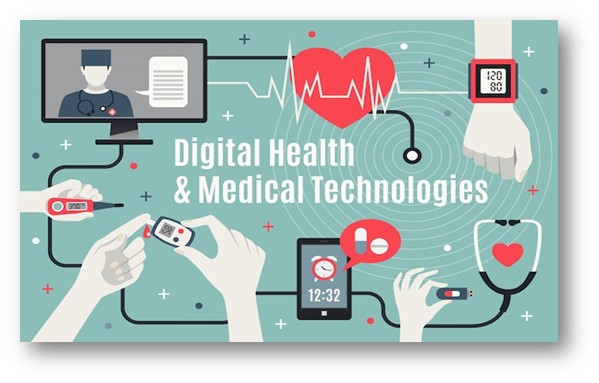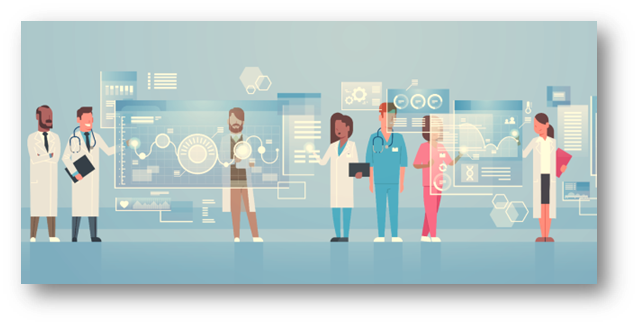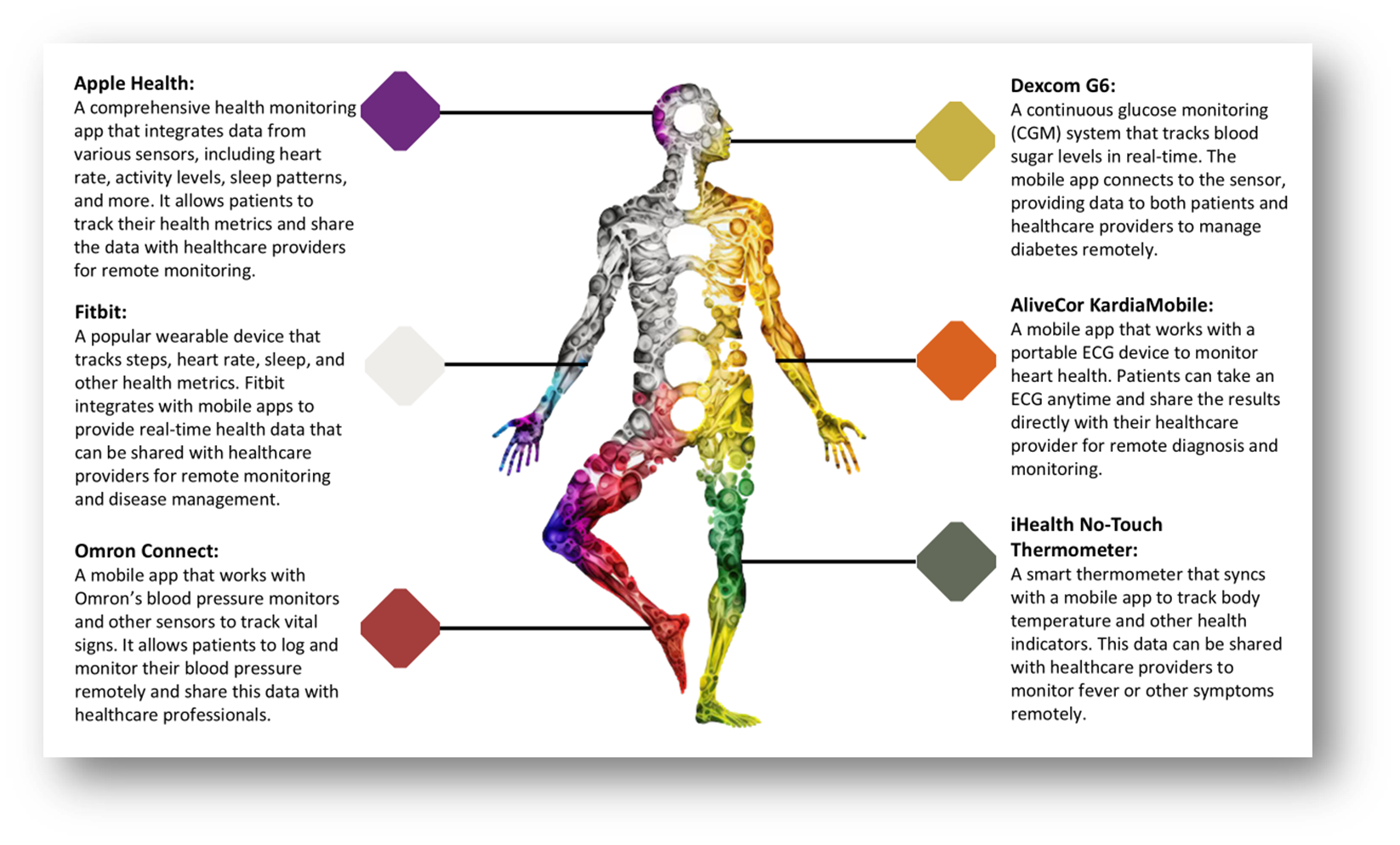
Digital health is transforming the landscape of healthcare, revolutionizing how medical services are delivered, managed, and accessed. The integration of information and communications technologies (ICT) into healthcare practices has grown exponentially in recent years, and this trend is expected to continue as advancements in technology evolve. Digital health encompasses a wide range of technologies and innovations, from telemedicine and remote patient monitoring to mobile health applications, social media platforms, and electronic patient portals. By utilizing these tools, digital health enables continuous, data-driven monitoring of individual and population health, offering a more comprehensive approach to managing well-being outside traditional clinic visits.
Digital health's primary objective is to enhance patient care by offering more personalized, timely, and accessible healthcare services. Instead of relying solely on episodic doctor visits, digital health technologies provide real-time access to health information and allow for ongoing monitoring of patients' conditions. This can lead to more effective, preventive healthcare strategies. Furthermore, as these technologies gather and analyze large amounts of data, healthcare providers can deliver precision medicine, improving treatment outcomes and optimizing care. Ultimately, digital health benefits both individuals and society by reducing inefficiencies, improving access to care, and fostering a deeper understanding of preventive healthcare.
Digital Health in the Era of COVID-19 and Beyond
The COVID-19 pandemic has highlighted the vital role digital health technologies play in transforming healthcare delivery. The pandemic's global reach accelerated the adoption of digital tools, such as telemedicine, remote patient monitoring, and mobile health applications, to maintain healthcare continuity amidst lockdowns and social distancing measures. Digital health, a broad term encompassing a variety of technologies like the Internet of Things (IoT), artificial intelligence (AI), and cloud computing, has become an integral part of public health responses, helping monitor and manage the crisis. These technologies allow healthcare providers to track patient data, manage chronic conditions, and offer timely interventions, thus significantly reducing human errors and improving overall care efficiency.
The Digitalization of Brain Health: Transforming Neurological Care
Digital health, encompassing a wide range of technologies, has emerged as a transformative force in addressing some of the most challenging healthcare issues of our time. The integration of digital tools into the healthcare system is not only revolutionizing patient care but also providing solutions for the growing burden of neurological and mental health disorders. As defined by the World Health Organization, digital health leverages information and communications technology to improve health outcomes, encompassing digital medicine, digital therapeutics, and remote monitoring tools. Among these, the rise of digital health applications in brain health holds immense potential.
The digitalization of brain health is poised to address the rising prevalence of chronic neurological and mental health conditions, such as Alzheimer's disease, Parkinson's disease, and depression. With an estimated one billion people worldwide living with diagnosable mental health conditions, the need for innovative, accessible healthcare solutions is paramount. Digital health technologies, such as telehealth, mobile health (mHealth) apps, and digital therapeutics (DTx), are breaking down barriers to care, especially for individuals with chronic brain conditions, enabling them to access timely support and monitoring from the comfort of their homes.

Telehealth: Revolutionizing Brain Health Management
Telehealth, encompassing remote consultations, virtual assessments, and teletherapy, has become a vital tool in managing neurological conditions, particularly in light of the COVID-19 pandemic. Telehealth services have significantly increased in popularity, providing an effective solution for patients with cognitive and motor impairments who may struggle to travel to healthcare facilities. In particular, telehealth has proven to be a reliable method for diagnosing and managing conditions like dementia, epilepsy, and neurodegenerative diseases, offering real-time access to healthcare professionals without the need for in-person visits.
Studies have shown that telehealth assessments for diagnosing conditions like dementia can provide comparable accuracy to traditional face-to-face evaluations. Additionally, tele-EEG services have expanded access to critical diagnostic tools, enabling clinicians to remotely diagnose and monitor epilepsy and other neurological disorders. This shift toward remote healthcare is especially beneficial for individuals residing in underserved areas or those facing mobility challenges.
Mobile Health: Empowering Patients with Brain Health Conditions
The proliferation of smartphones and mobile health applications has brought about a significant shift in how patients with chronic brain conditions manage their health. With over 350,000 health-related apps available worldwide, many of these focus on monitoring symptoms, managing medications, and providing patient education. For example, mobile health applications like mPower, developed by Apple, have enabled remote monitoring of Parkinson's disease symptoms, gathering crucial data to improve understanding and treatment of the disease. The app allows participants to complete daily tasks and surveys that offer insights into their symptoms, without requiring them to leave their homes. This type of high-frequency, real-world data collection is crucial for clinical research and enhances our understanding of chronic brain conditions.
Digital Therapeutics: Evidence-Based Brain Health Interventions
Digital therapeutics (DTx) represent another significant development in brain health. These evidence-based, clinically validated interventions aim to prevent, manage, or treat neurological and psychiatric disorders. Unlike general mobile health applications, DTx products undergo rigorous regulatory scrutiny to ensure their effectiveness and safety. For instance, cognitive behavioral therapy (CBT) delivered through digital platforms has shown promise in treating conditions like anxiety and depression. The growing body of evidence supporting DTx suggests that digital tools, when combined with established therapeutic practices, can play a critical role in managing brain health.
Some Mobile apps and sensors for remote patient monitoring, designed for patient use:

Advancing Healthcare with Digital Solutions: Key Innovations and Collaborations Across the Globe
- In November 2024, The Royal Melbourne Hospital (RMH) has partnered with ANDHealth to gain early access to emerging digital and connected health solutions, fostering a collaboration that will provide independent expert advice on new technologies and ensure they align with the hospital's needs. This partnership allows RMH to evaluate and integrate cutting-edge tools, enhancing patient outcomes and clinical workflows.
- In November 2024, Qatar's Ministry of Public Health has introduced a new e-learning platform for healthcare practitioners, providing 17 evidence-based educational modules with more content set to be added in the future. The platform offers courses that qualify as Category 2 educational activities under the National Framework for Continuous Professional Development, and participants can download certificates of attendance upon completing each course and passing its assessment. This initiative supports Qatar's National Health Strategy 2024–2030 and aligns with the Human Development pillar of Qatar’s Vision 2030, aiming to enhance the knowledge and skills of healthcare professionals for improved patient care.
- In November 2024, The Australian government in Victoria has announced a $14M investment to roll out a connected electronic medical record (EMR) system across the state’s hospitals. Four additional health services, including The Royal Eye and Ear Hospital, Eastern Health, and rural health alliances, will transition to electronic systems. The initiative aims to modernize 76 health services, some of which still use paper-based records.
- In November 2024, The Singapore Health Promotion Board, in partnership with Google, ConnectedLife, and Fullerton Health, is launching the HealthTrack SG pilot programme to manage chronic conditions like hypertension and diabetes. The programme integrates clinical data with lifestyle metrics from wearable fitness trackers, consolidating them into an online dashboard for doctors to monitor and adjust treatment. Patients will also use a mobile app to support adherence to their health plans.
- In November 2024, CooperVision has launched a digital myopia control program across Asia-Pacific to simplify treatment trials for children. The program, initially piloted in Korea, enables clinics to digitally register patients for myopia control trials, increasing participation and retention. It aims to raise awareness among parents about the broader health risks of myopia beyond vision correction.